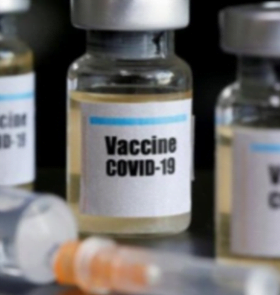As public officials and investors of major drug makers are celebrating the news that Pfizer Inc. and BioNTech have jointly developed a vaccine against COVID-19 with more than 90 percent effectivity, local doctors who had extensive experience in the public health sector expressed concern with the speed the supposed treatment against the coronavirus disease that killed over one million people worldwide was developed.
Vaccines are not developed in a matter of months. I am not saying that it is not effective but the first question that I raised (upon hearing the news) was why it was formulated so fast,” Dr. Ernell Tumimbang, provincial health officer of Negros Occidental, said.

Tumimbang’s observation was shared by Dr. Russel Atonson, who had worked for international non-government organizations and United Nations missions in Indonesia and Africa.
Atonson, who also writes a health column for Negros Weekly, said it is still premature to claim success.
He said that while the world eagerly awaits treatment for COVID-19, the public and governments must understand that vaccines, to be tested for their effectiveness, are developed between 10 to 15 years.
International wire agencies and major TV news networks around the world were burning lines Monday over the Pfizer Inc. report that its experimented vaccine is more than 90 percent effective based on Phase 3 results.
Pfizer Chief Executive Officer Albert Bourla told CNN that the trial results are great news for science and humanity.
“We welcome the encouraging vaccine news from @pfizer & @BioNTech_Group & salute all scientists & partners around the who are developing new safe, efficacious tools to beat #COVID19,” World Health Organization director Tedros Adhanom Ghebreyesus said in a tweet.
WHO had earlier reported that at least 70 COVID-19 vaccines are being developed globally.
The National Geographic said that hopes are high to bring a vaccine to market in record time to ease the global crisis.
It added that “given the urgent need, some vaccine developers are compressing the clinical process…by running trial phases simultaneously.”
“Personally, my initial reaction was I need to see the literature, read the results of their studies on how they generated the vaccine. We need to see the process, its bioassay,” Tumimbang told Negros Now Daily.
Like other medicines, he continued, it has to get a go-signal from local regulatory agencies like the Department of Health and the Food and Drug Administration.
“It will have to undergo the process for local licensing in the Philippines,” the PHO chief said, adding that “we wouldn’t know how long will its protection or immunity last.”
It is still too early, Atonson said. He added “it appears it was done in haste.”
“Vaccine takes 10 to 15 years to develop. It has to be tested from animals to humans. The problem is the long-term effect. If we give it now, we wouldn’t know its side effects. Many vaccines in the past resulted in damaging side effects in the end,” he said.
Tumimbang agreed. “It should be tested for side effects or allergies,” the Capitol official said.
Atonson cited the case of Rubella, the vaccine for measles which the Americans stopped using.
Rubella is being blamed for the high number of autism in the U.S., that’s why they stopped using it.
“Consequently, measles cases are on the rise recently in the United States for lack of safe vaccine,” Atonson said. -ETL



